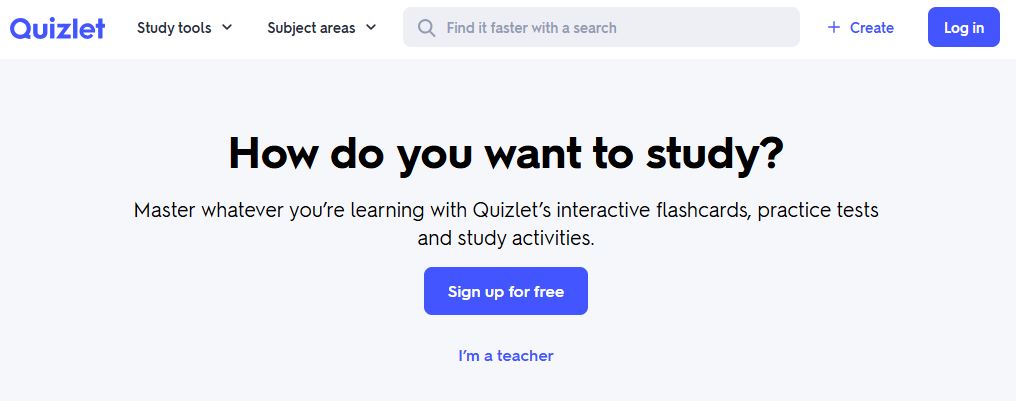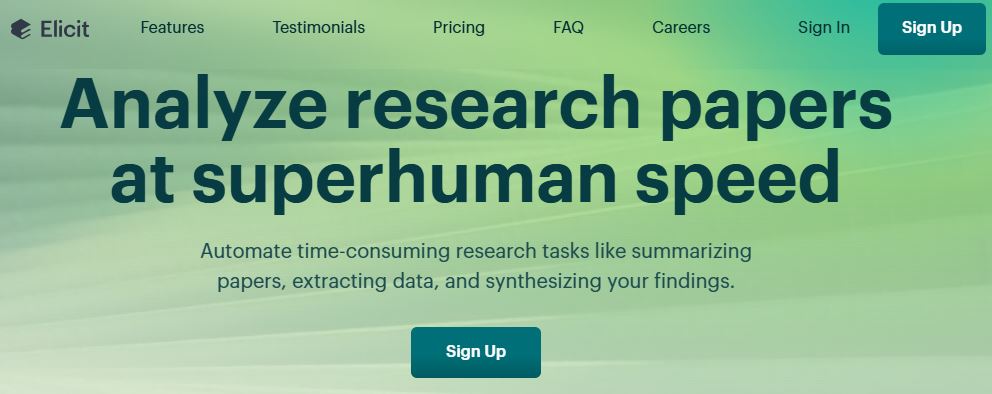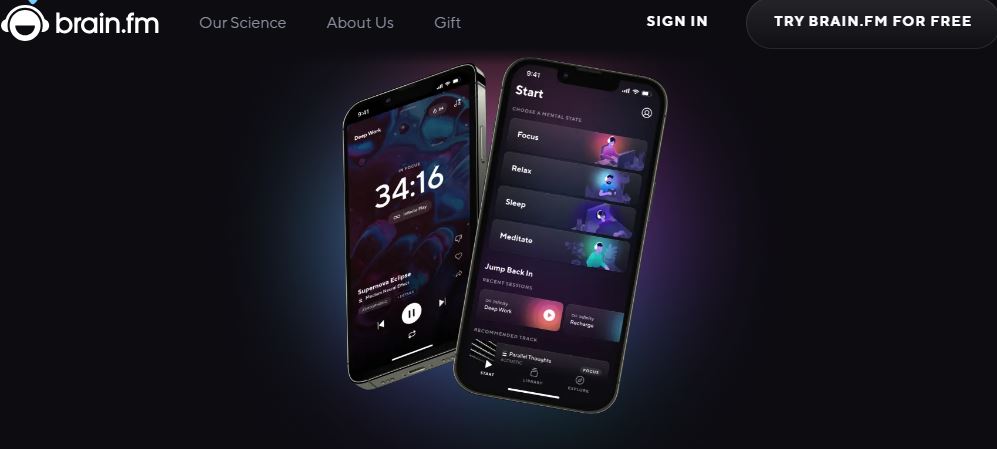Studying textbooks can be time-consuming and overwhelming, but with the rise of AI-powered study apps, the process has become more efficient and manageable. These apps offer features like summarization, flashcard creation, note-taking, and personalized learning, making it easier to grasp complex concepts and retain information. In this blog, we’ll explore the best AI apps to help you study textbooks, highlighting their key features, pros, cons, and a comparison table to help you choose the right one for your needs.

Why Use AI Apps to Study Textbooks?
AI apps streamline the textbook studying process, making it faster, more efficient, and personalized. These tools can summarize complex chapters, generate flashcards, and even turn text into audio for hands-free learning. By leveraging AI, students can focus on understanding key concepts instead of spending hours on manual note-taking or searching for resources. Additionally, AI apps offer adaptive learning techniques, tailoring study sessions to individual needs, helping with retention, and improving overall comprehension. Whether you’re tackling dense academic material or preparing for exams, AI apps can simplify your study routine and enhance your learning experience.
Top Features to Look for in AI Study Apps
When choosing the best AI apps to help you study textbooks, look for these essential features to enhance your learning experience:
1. Text Summarization: AI apps that can condense long textbook chapters into concise summaries save time and help you focus on key points.
2. Flashcard Generation: Automatically creating flashcards from textbook content allows for efficient review and retention of important terms and concepts.
3. Note-Taking and Organization: Apps with AI-powered note-taking tools help organize your study materials, making it easy to access and review them later.
4. Personalized Learning: Adaptive learning features tailor study sessions to your progress, ensuring a more personalized and effective learning experience.
5. Multi-Format Support: Look for apps that support various formats like PDFs, eBooks, and scanned documents for broader usability.
6. Text-to-Speech Conversion: Text-to-speech features turn textbook content into audio, perfect for auditory learners or on-the-go studying.
Best AI Apps to Help You Study Textbooks
1. Quizlet

Quizlet uses AI to help students turn textbook material into flashcards and quizzes, making learning more interactive.
Key Features
- AI-generated flashcards from textbook content.
- Multiple study modes including quizzes and games.
- Integration with images and diagrams.
Pros
- Interactive and engaging learning experience.
- Great for memorization and review.
- Syncs across multiple devices.
Cons
- Some advanced features require a premium subscription.
- Limited customization for flashcards in the free version.
2. Notion AI
Notion AI helps students organize and summarize textbook notes with AI-generated suggestions and templates.
Key Features
- AI-powered note summarization and task management.
- Customizable study templates.
- Real-time collaboration features.
Pros
- Excellent for organizing large volumes of textbook notes.
- Easy to integrate with other productivity tools.
- Intuitive interface.
Cons
- Free version has limited AI features.
- Requires an internet connection for AI functions.
3. Cramly AI
Cramly AI focuses on breaking down textbook material into bite-sized summaries and practice questions.
Key Features
- AI-driven textbook summarization.
- Automatic quiz and flashcard creation.
- Personalized learning recommendations.
Pros
- Perfect for quick review sessions.
- Saves time on note-taking.
- Adaptive learning approach.
Cons
- Limited free-tier access.
- Not suitable for highly technical subjects.
Also Read: 10 Best AI Novel Writing Software
4. Perplexity AI
Perplexity AI offers textbook search and summarization tools to help students quickly find and understand key concepts.
Key Features
- AI-powered textbook search engine.
- Quick concept summarization.
- Supports various document formats.
Pros
- Fast and accurate information retrieval.
- Reduces research time.
- User-friendly interface.
Cons
- Free version may include ads.
- Limited offline functionality.
5. StudyBlue
StudyBlue offers AI-powered flashcards and collaborative study groups for textbook review.
Key Features
- AI-generated flashcards and quizzes.
- Collaborative learning tools.
- Syncs with textbook content.
Pros
- Ideal for group studies and peer collaboration.
- Cloud-based for easy access.
- Customizable flashcard sets.
Cons
- Requires a premium account for advanced features.
- Occasional syncing issues.
6. Elicit

Elicit is an AI research assistant that helps students extract information from textbooks and generate citations.
Key Features
- AI-assisted information extraction.
- Automatic citation generation.
- Summarizes academic texts.
Pros
- Excellent for research-heavy subjects.
- Saves time on citation formatting.
- Accurate academic references.
Cons
- Best suited for college and graduate students.
- Requires some learning curve.
7. Speechify
Speechify converts textbook content into audio, allowing students to listen and learn on the go.
Key Features
- AI-powered text-to-speech conversion.
- Adjustable reading speed.
- Supports various file formats.
Pros
- Great for auditory learners.
- Enhances multitasking.
- Available on multiple platforms.
Cons
- Free version limits voice options.
- Accuracy can vary with complex texts.
8. Socratic by Google
Socratic uses AI to provide detailed explanations and resources for textbook problems through visual search.
Key Features
- AI-driven problem-solving assistance.
- Visual search using your camera.
- Step-by-step explanations.
Pros
- Perfect for solving math and science problems.
- Easy-to-use interface.
- Instant access to resources.
Cons
- Limited to high school and early college-level content.
- Requires internet connectivity.
Also Read: 10 Best AI Tool to Create Vector Art
9. RemNote
RemNote uses AI to create interconnected notes and flashcards from textbook content, promoting active recall.
Key Features
- AI-powered note linking and flashcard generation.
- Knowledge graph visualization.
- Supports spaced repetition learning.
Pros
- Great for long-term retention.
- Combines notes and study tools.
- Free version offers robust features.
Cons
- Interface can be overwhelming for beginners.
- Limited mobile app features.
10. Brain.fm

Brain.fm enhances focus with AI-generated music tailored to studying, perfect for textbook review sessions.
Key Features
- AI-generated focus music.
- Timer and session customization.
- Scientifically backed soundtracks.
Pros
- Boosts concentration and retention.
- Customizable study sessions.
- Simple, distraction-free interface.
Cons
- Requires premium for offline access.
- Not a direct textbook tool, but enhances study sessions.
Best AI Apps to Help You Study Textbooks at a Glance
| App | Key Features | Pros | Cons |
|---|---|---|---|
| Quizlet | Flashcards, quizzes, games | Interactive, great for memorization | Premium features limited in free version |
| Notion AI | Note summarization, templates | Organizes large notes, easy integration | Limited AI features in free version |
| Cramly AI | Summarization, flashcards, quizzes | Time-saving, adaptive learning | Limited free-tier access |
| Perplexity AI | Textbook search, concept summaries | Fast information retrieval | Ads in free version |
| StudyBlue | Flashcards, collaborative tools | Ideal for group studies | Requires premium for advanced features |
| Elicit | Information extraction, citation generation | Great for research-heavy subjects | Learning curve for beginners |
| Speechify | Text-to-speech, adjustable speed | Great for auditory learners | Accuracy varies with complex texts |
| Socratic | Problem-solving, visual search | Ideal for math and science problems | Limited content scope |
| RemNote | Note linking, spaced repetition | Excellent for long-term retention | Overwhelming interface |
| Brain.fm | AI-generated focus music | Boosts concentration | Premium for offline access |
Wrapping It Up
The best AI apps to help you study textbooks can revolutionize how you learn, offering everything from flashcard creation to personalized study guides and audio conversions. Whether you need help summarizing dense chapters or want to improve focus with AI-generated music, there’s an app tailored to your needs. Consider your study style and requirements to choose the one that fits best, making textbook studying more efficient and enjoyable.
Interesting Reads
10 Best Free Music Plugins for WordPress
10 Best Online Image Optimizer Tools Compared (Real Test Data)




